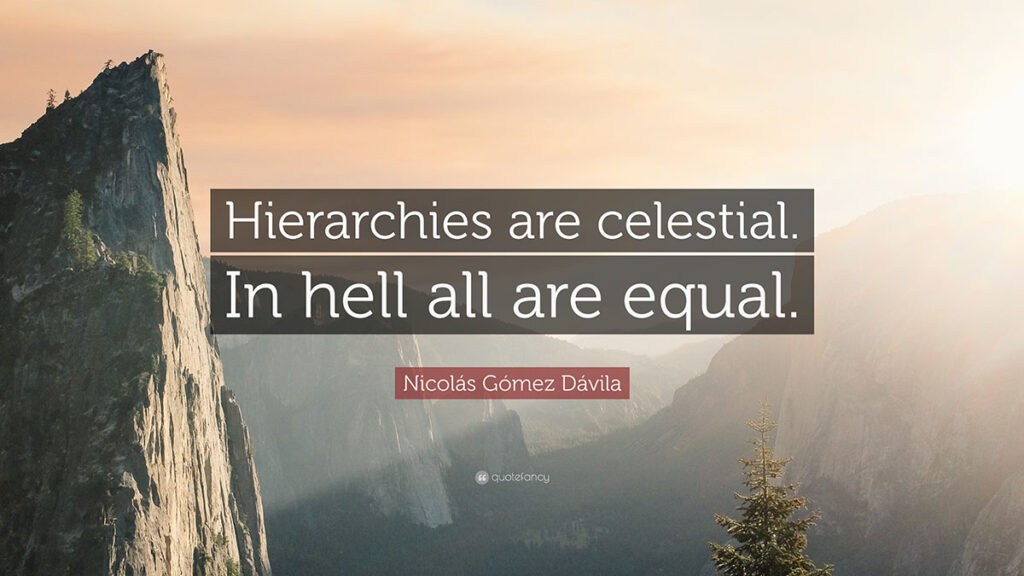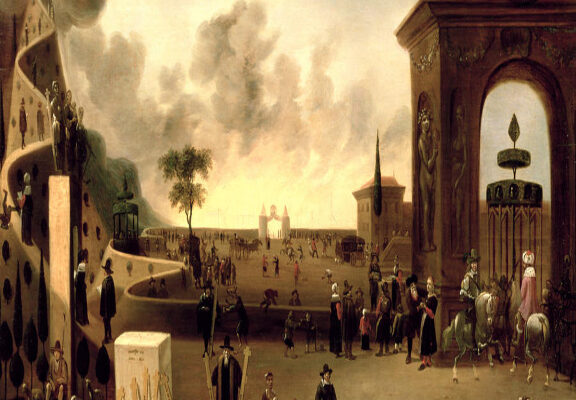I am connected with a few American dissident groups and a few European groups on various platforms. One thing you pick up on quickly is how different they are, even though both groups are diehard nationalists.
For instance, Nicolás Gómez Dávila is a man that is often mentioned (or at least popularly known) amongst the latter, but very few Americans know the name. Which is a shame, because the Colombian is a champ, especially regarding aphorisms that are still widely used today.
Dávila is a spiritual ancestor of modern dissidents, given his history and work. Here is a short backstory of the rabid critic of modernity:
Gómez Dávila was a Colombian scholar who spent most of his life in the circle of his friends and within the confines of his library. He belonged to the upper circles of Colombian society and was educated in Paris. Due to severe pneumonia, he spent about two years at home where he was taught by private teachers and developed a lifelong love of classical literature. He never, however, attended a university. In the 1930s he went back from Paris to Colombia, never to visit Europe again, except for a six-month stay with his wife in 1948. He built up an immense library containing more than 30,000 volumes around which his literary existence centred. In 1948 he helped found the University of the Andes in Bogotá.
[…]
From this decision resulted his strong criticism not only of left-wing but also of right-wing and conservative political practices, even though his explicitly reactionary principles show some similarities to conservative viewpoints. His skeptical anthropology was based on a close study of Thucydides and Jacob Burckhardt as well as his affirmation of hierarchical structures of order on society, state and church. Gómez Dávila emphatically criticised the concept of the sovereignty of the people as an illegitimate divinisation of man and a rejection of the sovereignty of God. He was likewise deeply critical of the Second Vatican Council which he saw as a problematic adaptation to the world. He particularly deplored the replacement of the Ecclesiastical Latin Tridentine Mass with the vernacular Mass of Paul VI in the wake of the council. Similar to Juan Donoso Cortés, Gómez Dávila believed that all political errors ultimately resulted from theological errors. That is why his thought can be described as a form of political theology.
The modern ideologies such as liberalism, democracy, and socialism, are the main targets of Gómez Dávila’s criticism, because the world influenced by these ideologies appeared to him decadent and corrupt.
[…]
He created “the reactionary” as his unmistakable literary mask and made it into a distinctive type of thinking about the modern world as such. In his later work he attempted to define the “reactionary” with which he identified in an affirmative way by locating him somewhere beyond the traditional position of left and right.
Part of his lesser-known status is his own fault. He never tried to become widely known. It is only by the European translators that we have any of his work at all.
Still, that just makes him more interesting.
Arguably my favorite aphorism of his is this one:

In hell, all are equally separated from the glory of God—Forever.
In these two short sentences, Nicolás encapsulates the true philosophy of the Left: They are trying to create hell on earth.
If you have time, look up some of his other quotes. There are some golden ones that you have probably heard regurgitated by others, such as:
“Dying societies accumulate laws like dying men accumulate remedies.”
“Violence is not necessary to destroy a civilization. Each civilization dies from indifference toward the unique values which created it.”
“I distrust every idea that doesn’t seem obsolete and grotesque to my contemporaries.”
“In a century where the media publish endless stupidities, the cultured man is defined not by what he knows but by what he ignores.”
All of which are glaringly true.
It is a shame that more Americans have not read this works or know his history. Hopefully, this article is the first step in rectifying that for some of you.

A Christian, husband, father, and American dissident. Join him in seeking truth and sipping sweet tea during the collapse of the American Empire. You can find more of his work at hiddendominion.com. Eph. 5:11.







“Why doth the goyim rage?” I can tell you. It is because we are smarter, richer and better than they are.
That and our petite, beautiful noses. L’Chaim!
Thanks for this article.
I use music that’s obscure to expanded Right Wing Dissenters views!!
My comments may seem odd however, to understand the English better, not that I care for this music aesthetics, dig up information if you incline? Concerning the Punk Band called: Crass
Dixie music is above all to me!
Cheers !